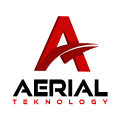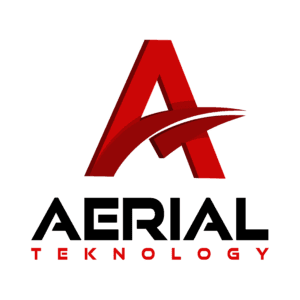Industries
Medical
Medical Industry
Information technology (IT) has revolutionized the medical industry in numerous ways. Healthcare software and systems streamline patient data management, enhancing accuracy and accessibility for healthcare professionals. Telemedicine allows remote consultations, improving access to care. Advanced imaging technologies aid in diagnosis, while AI assists in analyzing medical data for quicker, more accurate results.
Medical apps help patients monitor their health and appointments. Information technology plays a pivotal role in medical research and drug development, speeding up the process and enabling precision medicine. Overall, IT integration ensures efficient healthcare delivery, better patient outcomes, and continual advancements in the field.

Medical Industry IT Challenges

The medical industry faces several significant IT challenges. Ensuring data security and patient privacy is paramount, given the sensitive nature of medical records. Integrating various IT systems, such as Electronic Health Records (EHRs), can be complex, leading to interoperability issues. Healthcare providers must also keep up with ever-evolving technology and regulatory changes, which demand constant training and compliance efforts.
The high costs associated with implementing and maintaining IT infrastructure can strain budgets. Balancing the benefits of technology with these challenges is crucial to harnessing IT’s full potential in the medical field while safeguarding patient information and providing quality care.
How Aerial Teknology is Helping Medical Industry?
Aerial Teknology is a digital marketing agency providing high-quality services in diverse industries. Information Technology (IT) and digital services have become indispensable in revolutionizing the medical industry, enhancing patient care, improving efficiency, and driving innovations. Here’s how Aerial Teknology is playing its role in the IT industry, making a significant impact:
Electronic Health Records (EHRs)
EHRs have replaced paper-based medical records, enabling healthcare providers to access patient information quickly and securely. Aerial Teknology builds software solutions that streamline data management, reduce errors, and enhance the overall quality of care. Patients can also access their records remotely, fostering transparency and engagement in their healthcare journey.


Telemedicine and Remote Monitoring
Telemedicine platforms allow patients to consult with healthcare professionals remotely, improving access to medical services, especially in rural or underserved areas. Remote monitoring devices and wearable technology enable continuous tracking of vital signs, chronic conditions, and post-operative recovery, allowing for timely interventions and reduced hospital readmissions.
AI and Machine Learning
Artificial Intelligence (AI) and machine learning algorithms analyze vast datasets to identify patterns, predict diseases, and assist in diagnosis and treatment planning. AI-driven tools can sift through medical records for insights, improving early disease detection and personalized medicine.

Telehealth and Virtual Visits
Telehealth solutions offer virtual consultations, reducing the need for in-person visits and minimizing healthcare costs. Patients can seek medical advice from the comfort of their homes, enhancing convenience and accessibility to care, especially during the COVID-19 pandemic.
Health Information Exchange (HIE)
HIE systems allow secure data sharing between different healthcare providers, ensuring seamless patient care across various facilities. It eliminates the need for redundant tests and treatments, reducing costs and improving patient outcomes.
Data Analytics
Advanced analytics tools help healthcare organizations make informed decisions by examining large datasets. Predictive analytics can anticipate disease outbreaks, optimize resource allocation, and improve population health management.
Prescription and Medication Management
E-prescribing systems reduce errors in medication orders and enhance medication adherence through automated reminders. Pharmacists can access electronic prescriptions, promoting patient safety and efficient medication management. Aerial Teknology develops software systems that smoothen the processes of the medical facilities.
Patient Engagement
Digital services offer patient portals and mobile apps that empower individuals to actively manage their health. Patients can schedule appointments, request prescription refills, access educational resources, and track their health metrics, promoting engagement and preventive care.
Future of IT in the Medical Industry
The future of Information Technology (IT) in the medical industry promises to be transformative, with innovations poised to revolutionize healthcare delivery, research, and patient outcomes. Here’s a glimpse into what the future holds:
- AI-driven algorithms will play an increasingly significant role in disease diagnosis, predicting patient outcomes, and suggesting personalized treatment plans.
- Telemedicine will become more integrated into mainstream healthcare, offering virtual care solutions for a broader range of medical conditions.
- Real-time health data to both patients and healthcare providers, enabling proactive interventions and early disease detection.
- Patient records, clinical trials, and drug supply chains will benefit from transparent and tamper-resistant data management.
- Robots will assist in surgery, medication administration, and patient care, enhancing precision and reducing human error.
- Predictive analytics will enable early disease detection and prevention.
- Patients will actively participate in decision-making and care management through digital health platforms and apps.
These advancements will not only improve patient care but also drive efficiencies, reduce costs, and accelerate medical research and innovation. It’s an exciting time for the intersection of technology and healthcare, with countless opportunities for positive impact on global health.


